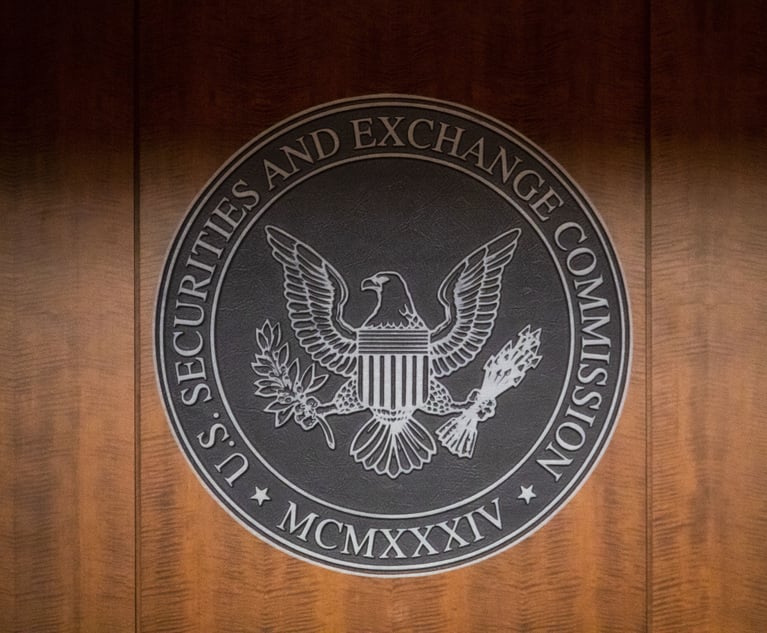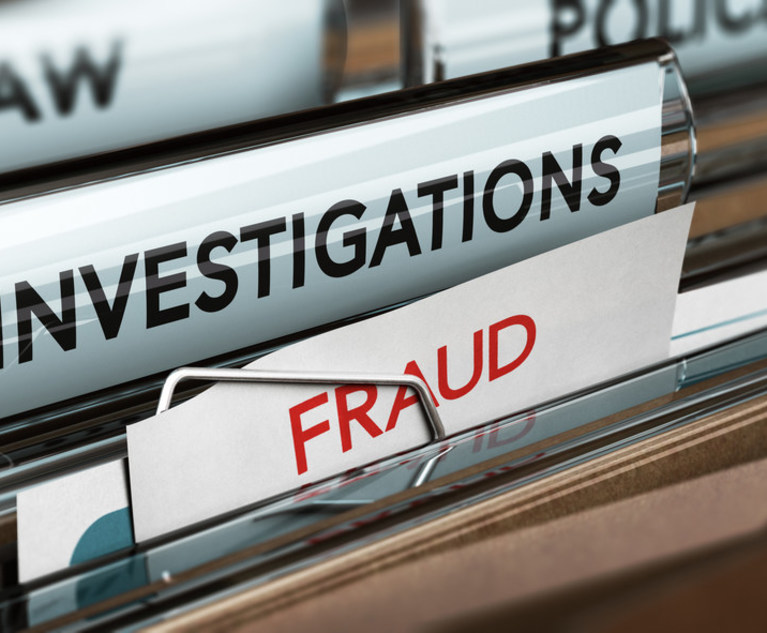
July 08, 2024 | New York Law Journal
Mezzanine Loans and UCC Foreclosures: Recent NY Case Law on the Commercially Reasonable StandardThis article explores a recent case from the Southern District of New York that discusses certain requirements under the UCC related to the mechanism by which a secured party can dispose of its collateral upon an event of default by the borrower.
By Cameron Weil and Daniel J. Evans
8 minute read

July 08, 2024 | New York Law Journal
Supreme Court Agrees To Decide Another Mail/Wire Fraud QuestionThis article describes different approaches taken to a "fraudulent inducement" theory of liability by contrasting the Third Circuit's decision in 'Kousisis' with the Second Circuit's different approach. It concludes with observations on the potential significance of a Supreme Court ruling that further limits the scope of mail/wire fraud.
By Elkan Abramowitz and Jonathan Sack
10 minute read

July 05, 2024 | New York Law Journal
Chasing Carrots: The Uncertain Rewards of SEC Self-Reporting and CooperationDaniel L. Zelenko and Anand Sithian are partners in the New York office of Crowell & Moring. Danielle Giffuni is counsel in the firm's New York office. Andrea Charles is an associate in the firm's New York office and Ahnna Chu is an associate in the firm's Los Angeles office.
By Daniel L. Zelenko, Anand Sithian, Danielle Giffuni, Andrea Charles and Ahnna Chu
8 minute read

July 05, 2024 | New York Law Journal
How Companies Will Be Affected by the Corporate Transparency Act, NY LLC Transparency ActThis article explores how the CTA and the related New York LLC Transparency Act impact U.S. companies and foreign companies conducting business in the United States, as well as financial institutions.
By Sarah E. Paul and Andrea L. Gordon
8 minute read

July 05, 2024 | New York Law Journal
FEPA: The Most Influential Anti-Bribery Legislation Since FCPA or a Paper Tiger?For those who advise clients on matters relating to cross-border compliance, the Foreign Corrupt Practices Act has been the primary federal anti-bribery law since 1977. That was until 2023, when President Biden signed into law the Foreign Extortion Prevention Act. In doing so, the federal government filled a longstanding gap that was unaddressed: the "demand side" of foreign bribery and corruption.
By Christopher T. Zona
8 minute read

July 05, 2024 | New York Law Journal
DOJ Seeks to Incentivize Corporate Compliance Through Voluntary Self-Disclosure Programs, Including Program for IndividualsThe DOJ and certain individual U.S. Attorney's Offices have announced six different voluntary self-disclosure or whistleblower policies and programs. With the proclamation of each one, the DOJ sent a clear message that they remain focused on corporate enforcement and want to incentivize companies and corporate insiders to self-report corporate malfeasance.
By Ellen M. Murphy, E. Scott Morvillo and Matthew Catalano
6 minute read

July 05, 2024 | New York Law Journal
All Lies Are Not the Same: The Federal Fraud Statute Under AttackThe U.S. Supreme Court and numerous circuit courts are seriously narrowing the scope of behavior that constitutes criminal fraud. This developing legal landscape requires defense counsel to rethink strategies on how to best defend against federal criminal fraud allegations.
By Chuck Kreindler, Jeff Kern and Michael Gilbert
8 minute read

July 05, 2024 | New York Law Journal
What's the Government Have To Do with Pre-Trial Release? For Foreign White-Collar Defendants, Almost EverythingTwo recent cases illustrate that the detention or release of foreign white-collar defendants pending trial almost always rests upon the DOJ's recommendation, and appears to result in sometimes inconsistent results.
By Mark E. Bini, Kaela Dahan and Victoria L. Jaus
7 minute read

July 03, 2024 | New York Law Journal
Proposed Settlement of Securities Class Action Concerning Alleged Bribery Scheme Approved as 'Fair and Reasonable'In 'In re Tenaris S.A. Securities Litigation', Judge Kiyo Matsumoto found that the proposed settlement satisfied both procedural and substantive fairness. As to procedural fairness, the court found that the settlement resulted from arm's-length negotiations enhanced by substantial discovery and that lead plaintiffs and lead counsel had adequately represented the settlement class because they had engaged in "vigorous advocacy" on its behalf.
By Thomas E. L. Dewey
11 minute read

July 03, 2024 | New York Law Journal
Planning Ahead for Tax LiabilitiesA noteworthy aspect of such planning, and the focus of this article, is the benefit, if any, of planning in advance for the relief from certain federal income tax liabilities potentially available to a married couple who reside together.
By Jeffrey A. Galant
11 minute read
Trending Stories
- 1Biden Will Be First Lawyer-President Without a JD From the 'T-14' in a Century
- 2Big Law Lawyers Kick Off Legal Community Group to Support Kamala Harris
- 3The Next Generation of Potential Judges Is Losing Interest in State Supreme Courts. Here's Why
- 4Gibson Dunn Partner to Become Fox News General Counsel
- 5Corporate Counsel Announces Its 2024 Women, Influence and Power in Law Awards!
More from ALM
- Morgan & Morgan Class Action Attorneys Detail Pathway to Success Within Cybersecurity and Data Privacy Practice 1 minute read
- Holwell Shuster & Goldberg Partners Leverage 'Hostile' Witnesses to Secure $101 Million Verdict Against Walmart 1 minute read
- Legal Speak at General Counsel Conference Midwest 2024: Mike Andolina, Partner, White & Case 1 minute read



